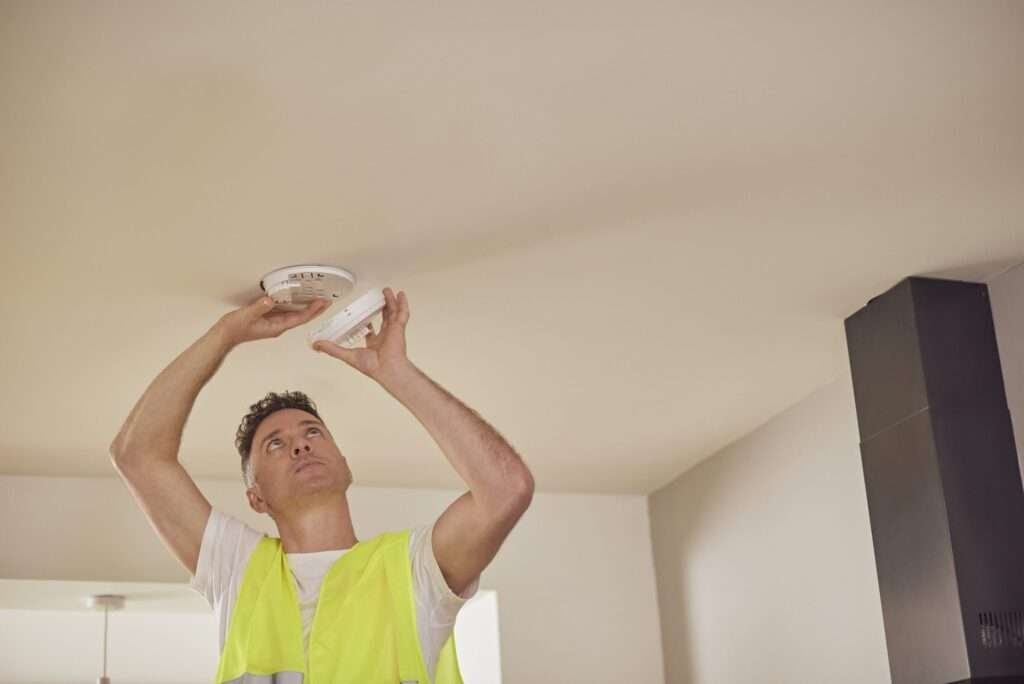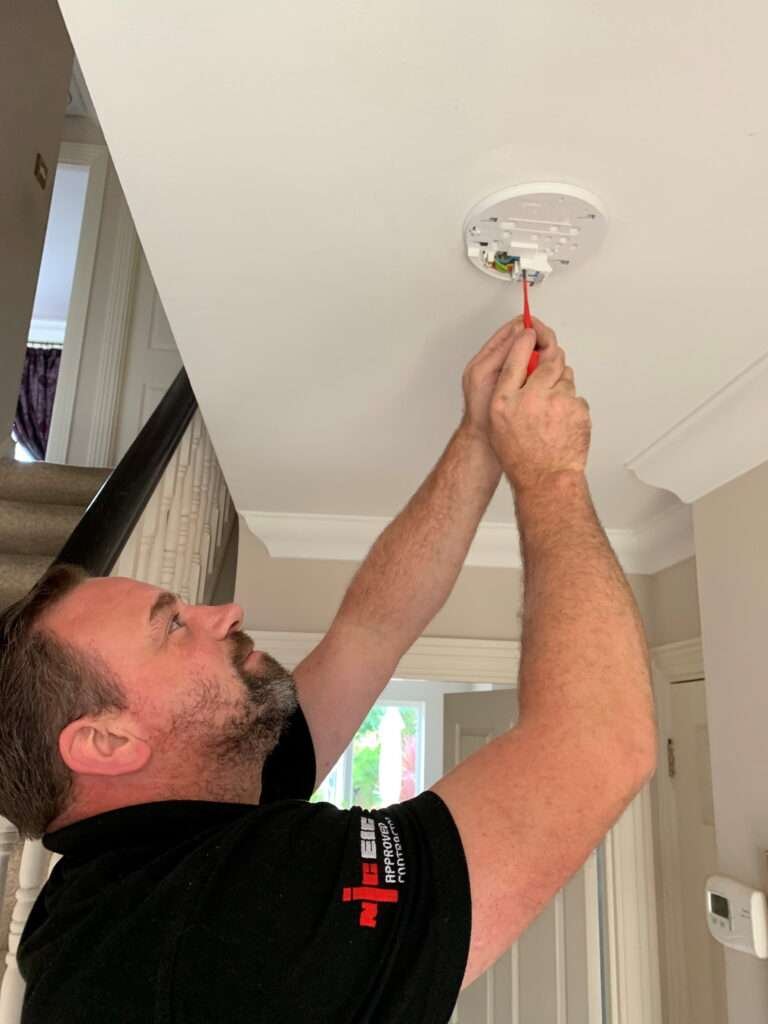How often should you check your fire alarm? Safety Essential Fire Alarms are Safety Devices.
Fire alarms are so important safety devices designed to alert you in the case of a fire emergency. The difference between life and death, literally, would depend on proper maintenance and testing. So how many times should you check your fire alarm to ensure that it remains in proper working condition? Discover here below the best practices in testing and maintenance of fire alarms to ensure your property is safe for your loved ones.
1. Why Fire Alarm Checks are Important
It’s the first line of defense in case of a fire emergency. When they don’t work for whatever reason, you’re all up to hang when the moment is of the utmost importance. This is why checking out these devices every now and then is an all-good idea:
Early warning: Fire alarms provide an early warning that will give you valuable seconds to evacuate once you see an iota of smoke or heat.
Battery and sensor reliability: Testing ensures that the batteries are functional and that the sensors are working properly.
Compliance: Scheduled fire alarm maintenance ensures proper safety regulations are met, especially with commercial and rental properties.
Regular checks of fire alarm installation ensure fire alarms can be relied upon to function once activated.
This may seem frequent, but weekly testing ensures that your alarm is consistently operational.

2. A weekly test involves
Pressing the test button on the alarm. The alarm should emit a loud sound, indicating that it’s functioning.
Fire alarm tests:
- Ensure the alarm is audible within the entire building.
- Address faults as soon as they arise.
- If the alarm does not sound, check the battery; if that doesn’t work, replace the unit.
Weekly checks are specific for special needs people residences, which may include infants, toddlers, or older adults who require special consideration during disaster situations.
3. Periodic Check on Monthly Basis Visual Inspection System Testing
Check your fire Fire alarm inspection every month, in addition to regular assessments in the fire alarm’s sound. That includes the following:
Clean dust, dirt, or other obstructions that you find on the device. You can use a soft brush or the vacuum attachment to clean the alarm if need be.
Ensuring the alarm is securely attached to the ceiling or wall. Make sure there are no loose parts.
Testing interconnected alarms. If your home or building uses interconnected fire alarms, verify that when one alarm sounds, all the others activate as well.
Monthly inspections will establish whether there is dirt buildup or physical damage to the smoke detector in such a way that it could reduce its capability to detect smoke.
4. Battery Replacement: after every 6 months
For the battery-operated fire alarm, their batteries ought to be replaced every six months. However, this has to be done regardless of the fact that whether the alarm has warned for low battery or not. A good practice is to change the batteries during daylight saving time changes.
If you have a fire alarm that uses a long-life battery (such as a 10-year sealed lithium battery), you won’t need to replace it as often. However, you should still perform regular weekly and monthly tests. Wired alarms should have a backup set of batteries installed every six months. These should be used to power the alarm when electricity is off, ensuring it continues to function.
5. Annual Tests: Service
An acceptable fire alarm inspection system should be tested by a qualified technician at least once a year besides the routine monthly testing, especially in the case of commercial or multi-level residential buildings with more complex installation of the fire alarm system. A professional technician can:
Perform a detailed inspection of all system components, including sensors, control panels, and heat detectors.
Test the alarm’s sensitivity to ensure it can still detect smoke and heat effectively.
Identify any signs of wear and tear, corrosion, or faults that may not be visible during your regular checks.
They check on the local safety regulations yearly and make sure your fire alarm system is reliable for the whole period of time.
6. Replacement of the Whole Alarm after 10 Years
Even if they are subjected to proper testing and servicing, fire alarms naturally possess a high tendency to lose their effectiveness over time. It is therefore advisable to replace your alarm even if it is still in good working condition after 10 years. The internal components, such as sensors, can degrade over time, reducing the alarm’s ability to detect smoke or heat.
To check the age of your fire alarm, look at the back of the device for a manufacturing date. If it’s over 10 years old or close to that age, replace it.

7. Types of fire alarm apparatus and what their maintenance requirements are:
Most fire alarms are not alike. Here’s how you should Regular maintain different kinds:
Ionization Smoke Alarms: They might quickly respond to fast-flaming fires, but dust and steam might necessitate frequent cleaning to avoid false alarms. Regularly test the unit and clean it to maintain proper function.
Photoelectric Smoke Alarms: Best for detecting smoldering fires, photoelectric alarms are less prone to false alarms but still need monthly cleaning to keep the sensor free from dust.
Combination Smoke Alarms: Devices that integrate ionization and photoelectric technology offer enhanced protection but require diligent testing and maintenance of both sensors. Heat Alarms are provided in the kitchens and in garages. These are based on levels of heat rather than smoke. Periodic cleaning is required for function tests.
8. How to Keep Your Fire Alarm at Its Finest State
So, in order to let that home fire alarm perform and live for the longest possible time, here’s how you would do clean it. In this case, your fire alarm can gather much dust, letting it interfere with the sensors inside; clean the device with a vacuum attachment or a soft cloth every month.
Do not cover the alarm: Never paint over the fire alarm and do not put any decoration on it for it may fail to detect smoke.
Install alarms strategically: Ensure there’s a fire alarm on each level of your home Commercial Installation, particularly near sleeping areas, to provide adequate coverage.
Upgrade to smart fire alarms: Smart alarms can send alerts to your phone when smoke or heat is detected, giving you extra peace of mind.
Conclusion
The frequency at which one checks their alarm varies with the type of alarm and living or working environment. For example, following these guidelines-these include weekly tests, monthly inspections, semi-annual battery replacements, annual professional checks, and replacement of the unit every 10 years-could ensure that a fire alarm stays reliable. Regular testing is not just about compliance; it’s about ensuring that you have ample warning in case of a fire emergency.
Make fire alarm maintenance a priority and stay proactive. A properly functioning fire alarm is your best defense in an emergency, protecting both lives and property.
